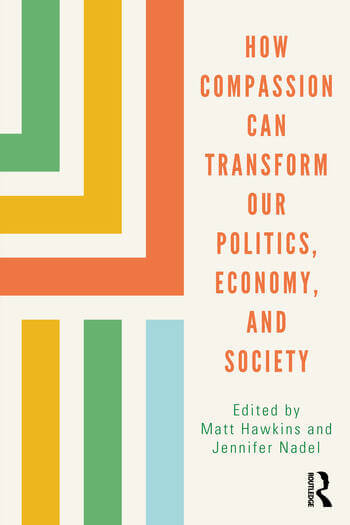Redefining success
Redefining success beyond profit is a fundamental step toward cultivating a more compassionate economic model. Promoting a more holistic approach to measuring economic success, one that integrates social and environmental metrics alongside financial indicators, can help recalibrate the focus of businesses and policymakers. By encouraging the incorporation of sustainability goals, social impact, and environmental responsibility into the framework of success, it becomes possible to shift the emphasis from profit-maximization to a more comprehensive understanding of well-being that encompasses the health of the planet and the welfare of communities.

Ethical businesses
Ethical business practices need strengthening, starting with expanded corporate governance models that include ethical duties to all stakeholders affected by company operations, not just shareholders. The definition and purpose of corporations must expand to encompass substantive responsibilities for environmental sustainability, fair labor practices globally, inclusive leadership, and community well-being. These ethical considerations must become integral in defining business success, guiding corporate strategy and determining executive incentives.

Stronger regulation
Stronger government regulation and oversight is also essential to prevent harms. Robust regulatory frameworks can help mitigate the adverse effects of unchecked market forces and ensure that businesses operate in a manner that prioritizes social and environmental well-being. Regulatory agencies must take a much more proactive role in policing unsafe products, pollution, financial speculation, monopoly power, and other practices detrimental to the public good. Moreover, effective oversight mechanisms can help prevent the exploitation of workers, promote fair wages, and enforce compliance with labor standards, thereby fostering a more equitable and just economic environment. Well-funded ethical oversight and stringent enforcement of regulations already in place and new protections yet to be enacted can ensure corporations internalize social costs.

Investment in green alternatives
Major public and private investment must urgently accelerate around constructing green infrastructure and enacting an equitable transition to renewable energy across all sectors. Rapidly transitioning our systems of energy production, transportation, agriculture, manufacturing and more towards renewable technologies will help mitigate climate change and create jobs. The integration of green infrastructure investments into economic policies and practices is vital in fostering a compassionate economy that prioritizes the preservation of the environment and the well-being of present and future generations.

Valuing caregiving labor
Caregiving labor like domestic labor, parenting, elderly care, social services, education, and other relationship-centered work must be properly valued and compensated. By providing adequate support, benefits, and wages for caregivers, societies can ensure the provision of high-quality care for the most vulnerable members of the population, while simultaneously promoting gender equality and social justice. Valuing caregiving labor not only enhances the overall quality of life for those receiving care but also fosters a more inclusive and equitable economic framework that acknowledges the intrinsic value of human care and compassion.

Cooperatives
Fostering cooperative structures within the economic framework is crucial for cultivating a more compassionate economy. Cooperative models, characterized by shared ownership, democratic decision-making, and equitable distribution of profits, prioritize the well-being of their members and communities over individual profit maximization. Models like employee-owned businesses, publicly-owned utilities, nonprofit credit unions, community land trusts giving residents control over local real estate, and decentralized renewable energy cooperatives all decentralize economic power. When the people most affected by economic decisions also govern them, outcomes tend to be more responsible and aligned with communal needs. By integrating cooperative principles into the economic system, societies can create a more inclusive and participatory framework that values cooperation, solidarity, and the equitable distribution of resources and opportunities, ultimately fostering a more compassionate and equitable economic ecosystem.






